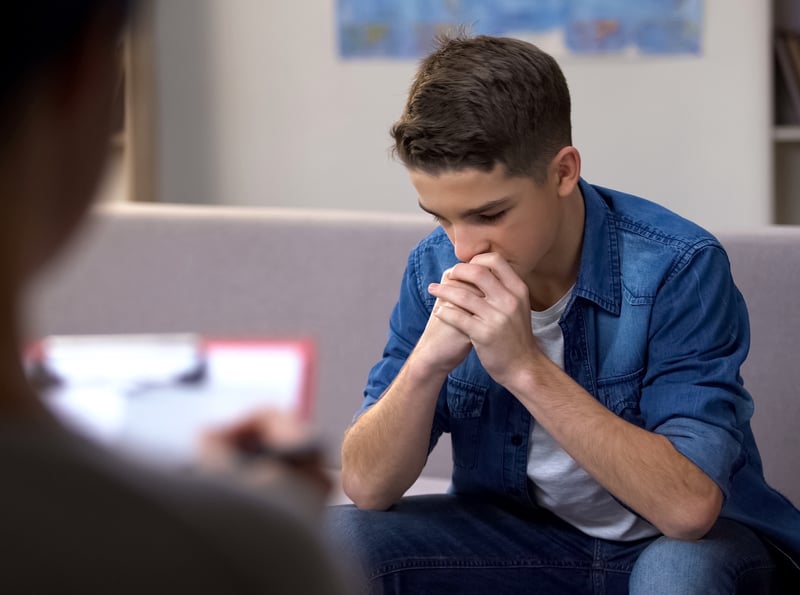Get Healthy!

- Posted June 13, 2023
Nearly 15% of School-Age Children in U.S. Have Received Mental Health Treatment
About one in every seven American kids aged 5 to 17 underwent some form of mental health treatment in 2021, the latest year for which statistics are available.
So finds a new report from researchers at the U.S. Centers for Disease Control and Prevention, which pegs the percentage of kids who got mental health care in 2021 at 14.9%.
Rates of mental health care were higher among older kids (aged 12 to 17), nearly 19% of whom received treatment over the prior year, than they were for children aged 5 to 11 (just over 11%).
The new statistics don't necessarily mean that more American children are suffering from mental illness, but it could mean that more are receiving the care they need, one expert said.
"I have a report from 2015 that suggests that 49% of U.S. children have a mental health disorder of some kind, may it be ADHD [attention-deficit/hyperactivity disorder], anxiety, depression, autism spectrum," said Mary Karapetian Alvord, a psychologist who practices in Chevy Chase, Md. "But at that time, the stat was that only 7.4% [of these children] actually received one treatment within the year. So there's definitely, I think, more access now, more availability."
However, another expert said the new numbers could reflect an increase in mental health troubles among kids.
"Following the pandemic, we have seen substantial increases in mental health concerns among youth. This has been documented by the U.S. Surgeon General," noted licensed psychologist Erlanger Turner, an associate professor of psychology at Pepperdine University in Malibu, Calif. "The data appears to show that in the most recent years children are struggling more."
According to the new report, boys and girls were equally likely to have received some form of mental health care, although boys were more likely than girls to have been treated with prescription medication (about 9% versus 7%, respectively).
That last statistic "stood out" for Turner.
"Boys were more likely to be treated with medication compared to girls and less likely to receive therapy," he said. "This is an important issue that we need to address, so that we're not just putting a bandage on these problems that boys are experiencing, and that we also give them some tools to learn better ways to cope."
Race seemed to matter, too. According to the report, while 18.3% of white children underwent mental health treatment in 2021, that number fell to 12.5% among Black children, 10.3% among Hispanic kids and 4.4% among Asian children, the report found.
Where a child lived seemed key, as well: While 14% of kids living in large cities received mental health services, that number rose to 19% among children living in rural areas. Rural kids who needed mental health care were much more likely to have gotten medications compared to children living in big cities (12% versus 7%, respectively).
In 2021, a report released by U.S. Surgeon General Vivek Murthy warned that the pandemic and other major issues faced by their generation were causing "devastating" mental health effects in young people.
"Young people are bombarded with messages through the media and popular culture that erode their sense of self-worth -- telling them they are not good-looking enough, popular enough, smart enough or rich enough," Murthy wrote. "That comes as progress on legitimate, and distressing, issues like climate change, income inequality, racial injustice, the opioid epidemic and gun violence feels too slow."
All of this could be putting a strain on children's mental health. But the good news, according to Alvord, is that admitting that help is needed might be easier now than it was in years past.
"As a society, we're more open to not stigmatizing mental health," she said. "So, from my perspective as a psychologist, we have performers, actors, actresses, singers that kids think are really cool and they're coming out with the different eating disorders that they have, or bipolar depression or anxiety, panic, and they're talking more openly. And I think parents in general are more open."
The new CDC report was authored by Benjamin Zablotsky and Amanda Ng at CDC's National Center for Health Statistics (NCHS). It was published online June 13 in an NCHS Data Brief.
More information
Find out more about the crisis in children's mental health at the Office of the U.S. Surgeon General.
SOURCES: Mary Karapetian Alvord, PhD, psychologist, Rockville and Chevy Chase, Md.; Erlanger Turner, PhD, licensed psychologist and associate professor, psychology, Pepperdine University, Malibu, Calif.; NCHS Data Brief, June 13, 2023, online








